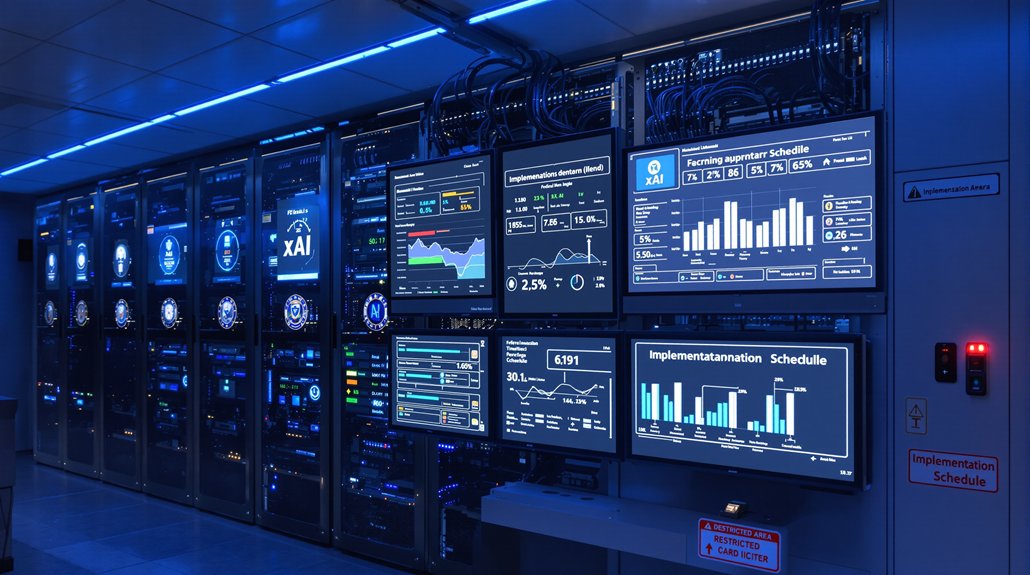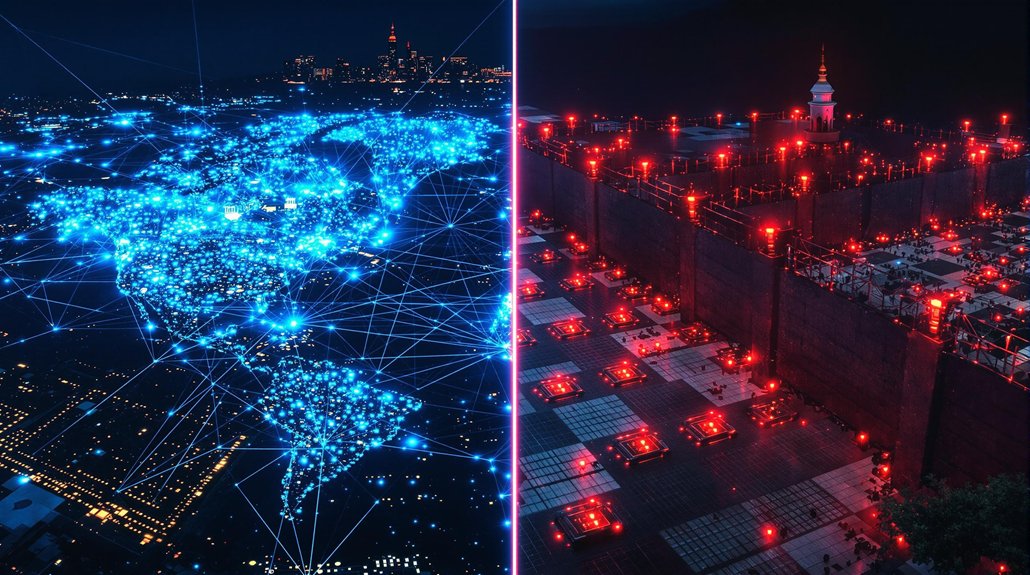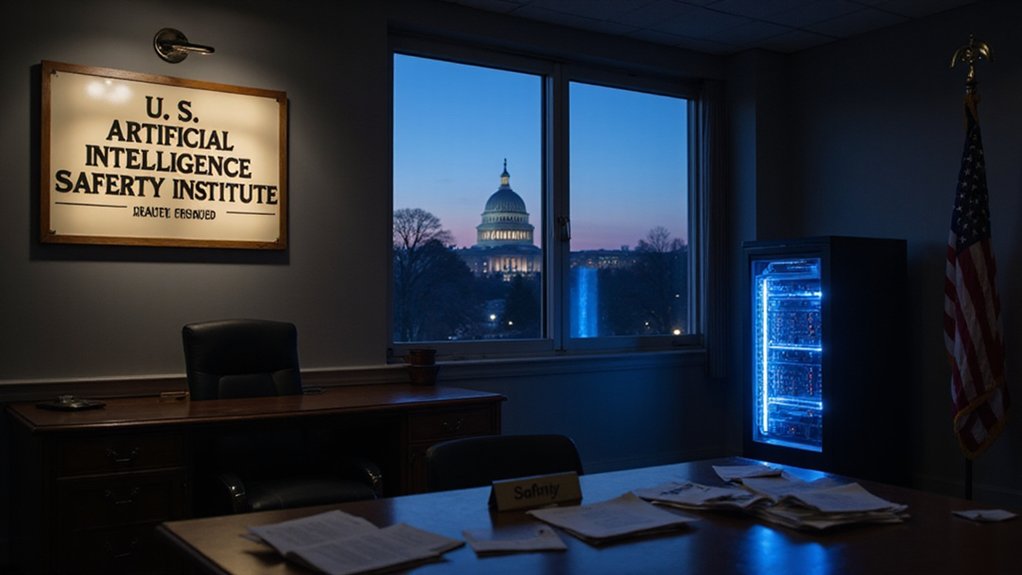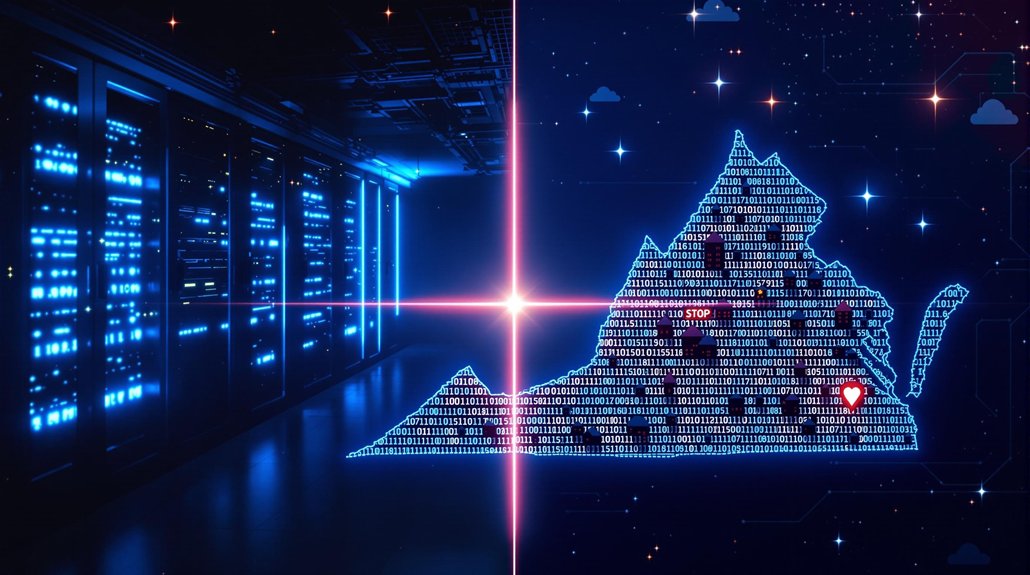Several new artificial intelligence systems are being rolled out across the U.S. government through initiatives led by Elon Musk’s companies and the Department of Government Efficiency (DOGE). The department’s using AI to find and cut what it calls wasteful federal spending. It’s collecting data from federal workers’ emails and SharePoint messages to train these AI models.
The Department of Government Efficiency is mining federal workers’ emails and messages to train AI models targeting wasteful spending.
Musk’s company xAI just launched “Grok for Government.” This AI service is available to federal, state, and local agencies. It includes the Grok 4 AI model and tools for specific government tasks. Agencies can buy these services through the General Services Administration‘s contracting system. The company says it’ll help with national security, healthcare, and classified work.
The Department of Defense gave xAI a contract worth up to $200 million. The military wants AI companies to build digital agents that can handle important tasks. Other AI companies like Anthropic and OpenAI also got similar contracts. Meanwhile, Palantir’s getting over $100 million to add Grok’s language model to civilian surveillance systems. Federal coders are testing Grok in the government’s AI sandbox and the new AI.gov platform.
Major changes are happening with AI oversight too. There’s a proposed law that would stop Congress from making new AI oversight rules for ten years. The Senate hasn’t voted on it yet. DOGE has cut funding for university research that studies AI bias. The administration says it’s part of reducing DEI programs. Current oversight of private companies’ AI systems has gotten much weaker. Tech companies are now mostly policing themselves.
The financial results aren’t matching the promises. Officials said AI would cut $1 trillion in federal spending. But federal spending actually went up 7% compared to last year. The focus has shifted to firing workers and cutting costs instead of improving services. Government software engineering involves complex tasks that current AI systems cannot handle effectively, putting critical infrastructure at risk. This follows concerning predictions that job displacement could affect nearly 300 million positions globally by 2030.
National security experts worry about the risks. They’re concerned that gathering all this government data for AI training could expose secret sources and methods. Past breaches like Chelsea Manning’s leak of diplomatic cables to WikiLeaks show what can happen when access controls fail. Musk and his tech team have hit major roadblocks trying to use AI to change how government offices work. The fast rollout continues despite these problems.
References
- https://www.bakerinstitute.org/research/security-concerns-surround-ai-vision-us-government
- https://techpolicy.press/using-ai-to-reform-government-is-much-harder-than-it-looks
- https://fedscoop.com/elon-musk-grok-us-government-deal/
- https://www.govconwire.com/articles/xai-grok-for-government-frontier-ai-model-grok-4-national-security
- https://techpolicy.press/musk-ai-and-the-weaponization-of-administrative-error









